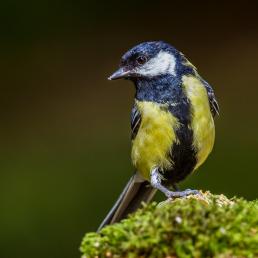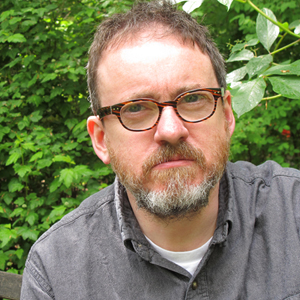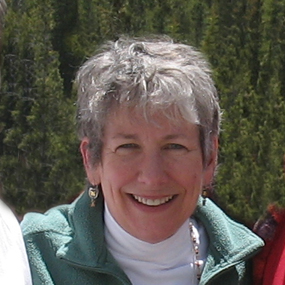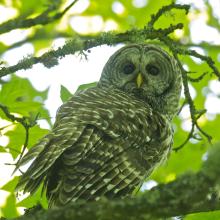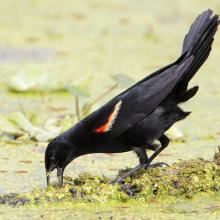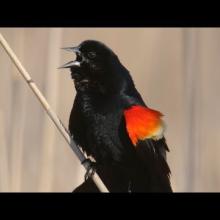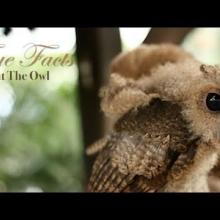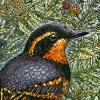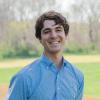

Join BirdNote tomorrow, November 30th!
Illustrator David Sibley and actor H. Jon Benjamin will face off in the bird illustration battle of the century during BirdNote's Year-end Celebration and Auction!
BirdNote asked our Facebook fans about the birds they observed in their yards this spring. Some people say they have more birds. Others say fewer. And why? Changes in habitat mean changes in species. In one person’s yard on San Juan Island, in Washington State, more trees mean more Barred Owls. One gardener said she has “lots more birds,” because she let a lot of plants go to seed last fall. And in the foothills of the Sierras, a fire last summer has made room for Red-winged Blackbirds. This spring, their fledglings — like this one — fill the air!
BirdNote®
What's Different This Year? We Ask Listeners
Dominic Black / Ellen Blackstone
This is BirdNote. I'm Dominic Black.
So, a couple of weeks ago on Facebook we asked listeners about what they've noticed in their local bird populations recently. Ellen Blackstone's been working through the responses with me. And Ellen — what are the main things folks are picking up on?
EB: You know it's interesting. Some people say they have more birds, some say fewer. One person in Washington State, Denise in San Juan Island, has noticed the habitat changing. She says there are fewer small birds than before because the trees have grown over her yard. And Barred Owls have gone from zero to three.
And those kinds of habitat changes — they happen naturally but also, we have an effect on that, right?
EB: Oh, you can definitely have an impact. Ariel in Renton, which is a suburb of Seattle, says she has lots more birds in her yard this year because she let a lot of her plants go to seed last summer.
So to go elsewhere — in the foothills of the Sierras, Jeannie wrote to us “I've had more birds here this year. We did have a grass fire that burned the pasture last summer and it looks more like a prairie: nesting Red-winged Blackbirds everywhere.”
And folks in the eastern US have been saying they've been putting out nestboxes and seeing more bluebirds than they've ever notice before.
EB: And this one last thing made me laugh out loud. Jay in Virginia said,
“If I had a dollar for every robin I see, we could all retire comfortably.
For BirdNote, I'm Dominic Black -
And I'm Ellen Blackstone.
Today's show was brought to you by the Lucky Seven Foundation.
###
Bird sounds provided by The Macaulay Library of Natural Sounds at the Cornell Lab of Ornithology, Ithaca, New York. Eastern Bluebird [107204] recorded byW L Hershberger; Spotted Towhee [188443] recorded by Bob McGuire; Red Wing Blackbird [12013] recorded by Richard W Simmers.
BirdNote’s theme music was composed and played by Nancy Rumbel and John Kessler.
Producer: John Kessler
Executive Producer: Dominic Black
© 2015 Tune In to Nature.org June 2015 Narrator: Ellen Blackstone / Dominic Black
ID# spring-14-2015-06-05 spring-14
